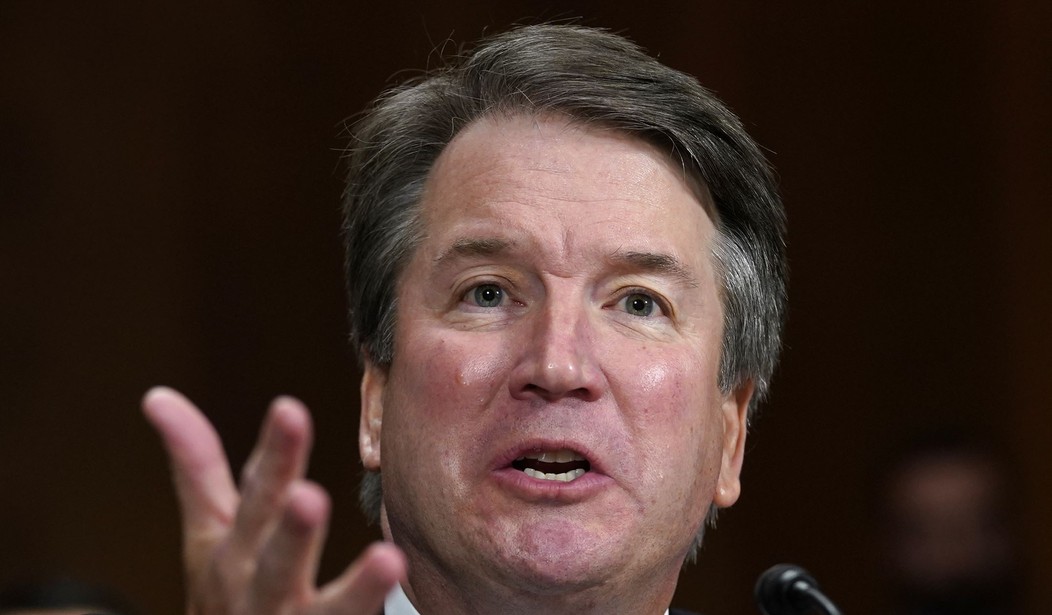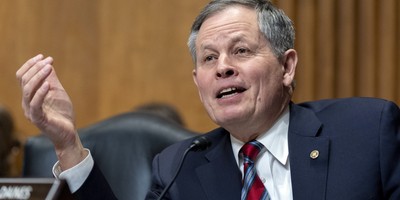Harsh winds are blowing on Capitol Hill. The hoped-for and feared clash between Judge Brett M. Kavanaugh and his principal accuser, Dr. Christine Blasey Ford, has come and gone, with all of its calculated and spontaneous outbursts, as well as gut-wrenching emotion.
Dr. Ford subjected herself to the public humiliation of revealing an intimate and horrific event, and she did so with grace and credibility. Judge Kavanaugh subjected himself to absurd questions about his youth, and he offered compelling denials with ferocity and indignation.
At the end of the Ford testimony, it seemed Kavanaugh was at the bottom of a pit. At the end of his testimony, it seemed he had climbed out. His denials of having sexually assaulted Ford 36 years ago lacked the dignity and impartiality that the law requires of federal judges, but his anger and political accusations were understandable for a man who believes he has been falsely accused in such a way as to taint his reputation for the rest of his life.
Whom should we believe?
In this setting, there were few rules and no burdens of proof. Ford surely did not prove that a youthful Kavanaugh assaulted her, and Kavanaugh surely did not disprove it. But the setting was not a court of law. It was a political setting utilizing legal tools -- taking oaths to tell the truth, confronting one's accuser, being subjected to cross-examination -- the goal of which was to create a general impression of believability. In that respect, both Ford and Kavanaugh succeeded.
Then a strange series of events happened.
After all interrogations were completed and after all Senate Judiciary Committee members made public statements, the committee voted along party lines, 11 to 10, to recommend sending Kavanaugh's nomination to the floor of the Senate. This was only a symbolic vote, because committee approval is not required under Senate rules as a precondition for a full Senate vote. Then the committee voted by consensus to ask the White House to dispatch the FBI to reopen its background investigation of Kavanaugh for seven days.
Recommended
It is quite simply unprecedented and unheard of for the Senate Judiciary Committee to ask for FBI agents to investigate a nominee after he has testified about the subject of the investigation and after the committee has approved his nomination. If the new FBI investigation is a genuine search for evidence, there should be no time limit imposed. What will the committee do if the FBI finds evidence of unworthiness for office or if it needs more time? Will the committee reopen hearings and take another meaningless vote?
This is a perilous investigation for Judge Kavanaugh because he has already testified under oath about the subjects of the investigation. It would have been fairer to all involved had the FBI been called in before last Thursday's testimony as was done in the similar Anita Hill/Clarence Thomas episode in 1991.
In his testimony, Kavanaugh gave the clear impression to the Senate Judiciary Committee that in his youth he was not a heavy drinker who became belligerent or who blacked out. Drinking to excess and becoming belligerent or somnolent after drinking in one's youth are, of course, not criminal acts unless someone is harmed thereby.
However, lying about any of this under oath can constitute perjury, and giving a false impression about any of it to Congress or to congressional investigators -- even if one's words are literally accurate -- can constitute the independent crime of misleading Congress.
If the FBI finds credible evidence to substantiate perjury or misleading Congress by Kavanaugh, his nomination and his current tenure as a federal judge are doomed.
And the FBI will dig. Its agents have legal responsibilities and ethical obligations that transcend instructions given to them by their superiors. If agents come upon evidence of crimes, they are required to pursue the evidence, no matter the time consumed or the political consequences.
Why is this nomination the subject of such rancor?
I have argued countless times that the federal government has grossly exceeded the limitations the Constitution imposes on it. Wherever you are as you read these words, look around you and try to find something in your line of sight that is not regulated by the federal government. It will be nearly impossible. Today the feds regulate not only our personal private behavior but also the states that created the federal government. More than half of each state's budgetary expenditures are mandated by the feds.
And passing final judgment on all this -- ratifying the Wilsonian view of the federal government (the feds may do whatever there is a political will to do, except that which the Constitution expressly prohibits) and eschewing the Madisonian view (the feds may do only what the Constitution expressly authorizes) -- is the Supreme Court.
As the reach of federal power has expanded, the power of the Supreme Court to restrain or unleash that reach has expanded. Add to this the life tenure of Supreme Court justices and the mania for re-election of members of Congress and you can recognize the slow transfer of governmental power from the elected branches to the unelected one.
Should the right to life and the extent of the imperial presidency and whether the government is obligated to provide health care be decided by elected representatives or by the Supreme Court? From those who expect the high court to decide these issues -- a court now evenly split, 4 to 4, along ideological lines -- is it any wonder the Kavanaugh nomination is worth a bitter battle?
The Supreme Court should not be political. It is the anti-democratic branch of government. Its constitutional obligation is not to do the people's will but to preserve personal liberty from the tyranny of the majority.

























Join the conversation as a VIP Member